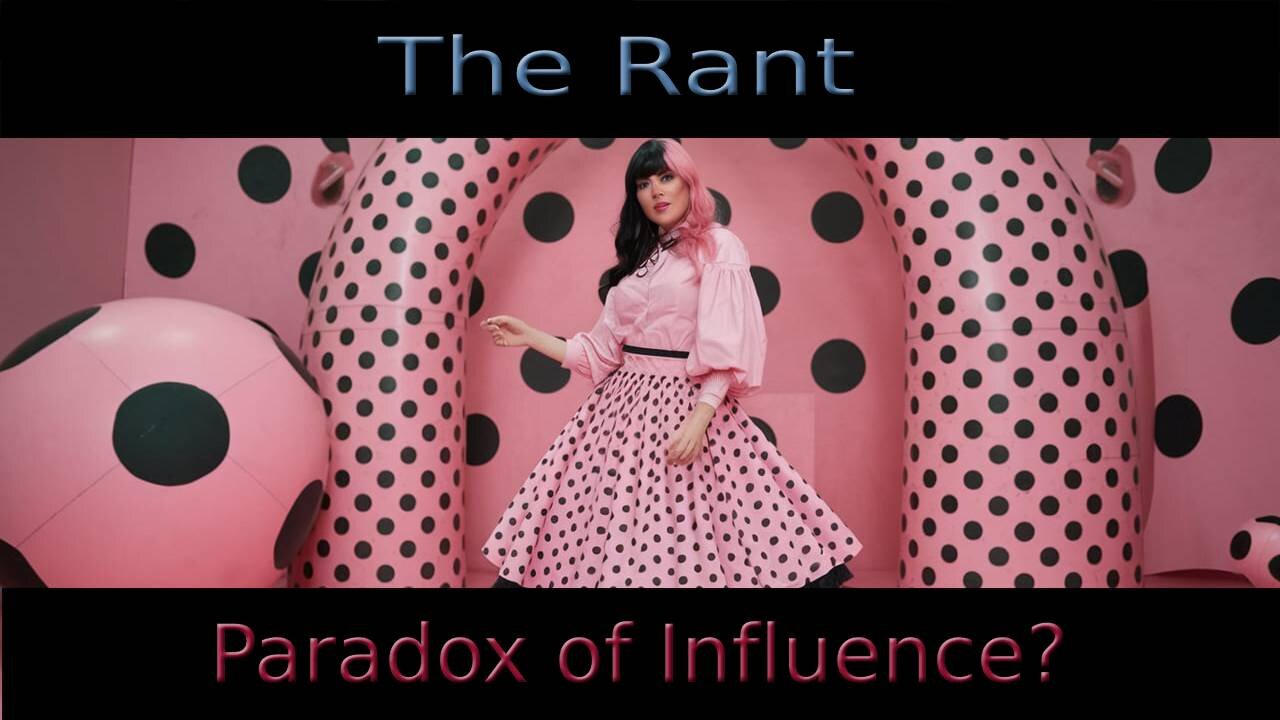Premium Only Content

The Rant-Paradox of Influence?
Social media influencers have become a significant force in shaping public opinion and disseminating information. However, their approach to conveying information often prioritizes emotional context over factual content, leading to potential disinformation and misinformation. Influencers often share stories that elicit emotional responses, such as humor or sadness, at the expense of a nuanced understanding of the issues at hand. This can lead to a distorted understanding of issues, deepening societal divides, and commodifying sensationalism. The quick consumption of emotionally charged content can discourage critical thinking, leading to a "share first, think later" mentality.
To navigate this complex landscape, influencers, brands, and consumers should prioritize transparency, accountability, and ethical storytelling. They should also encourage followers to seek out multiple sources and engage with diverse perspectives. Brands should prioritize collaborations that focus on ethical storytelling and factual reporting to foster a positive impact. Followers should approach content critically, recognizing the emotional drivers at play and actively seeking out factual information from reputable sources. By fostering a culture of responsibility and critical engagement, we can harness the power of social media while mitigating its potential.
-
 4:18
4:18
The Rant
11 days agoThe Rant-Enduring Covenant?
141 -
 2:09:35
2:09:35
Badlands Media
18 hours agoDevolution Power Hour Ep. 369: Debt Theater, Fake Elections, and Elon’s New Party Psyop
65.9K52 -
 1:17:43
1:17:43
The Connect: With Johnny Mitchell
8 hours ago $15.30 earnedCartel Hitman Reveals How The Jalisco New Generation Cartel Turned Him Into A Professional Sicario
34.8K3 -
 2:41:03
2:41:03
BlackDiamondGunsandGear
7 hours agoAfter Hours Armory / DLD & Mike w- CMMG / 4th of July Show!!
20.8K -
 2:10:37
2:10:37
Tundra Tactical
7 hours ago $20.12 earned🔫 World's Okayest Firearm Live Stream: GunCon Drama, NFA Smackdown & Silly 2A Games! 💥
58.7K1 -
 5:13:54
5:13:54
Cripiechuccles
9 hours ago😁💚💙SHATTERDAY WITH CRIPIE💚💙RUMLUV ACTIVATE👌COME IN AND SAY HI!!:😁
17.6K1 -
 2:41:03
2:41:03
DLDAfterDark
6 hours ago $6.43 earnedLet's Talk Suppressors! Feat. Mike From CMMG! The After Hours Armory!
29.3K -
 9:37:22
9:37:22
Reolock
10 hours agoWoW Classic Hardcore | Level and CHAT | RTMP
17.2K1 -
 8:00
8:00
MattMorseTV
11 hours ago $16.27 earnedHe just lost EVERYTHING.
45.9K42 -
 4:42:20
4:42:20
FusedAegisTV
12 hours ago$1000 Fortnite Tournament | 19 TEAMS!! #RumbleGaming
50.1K2